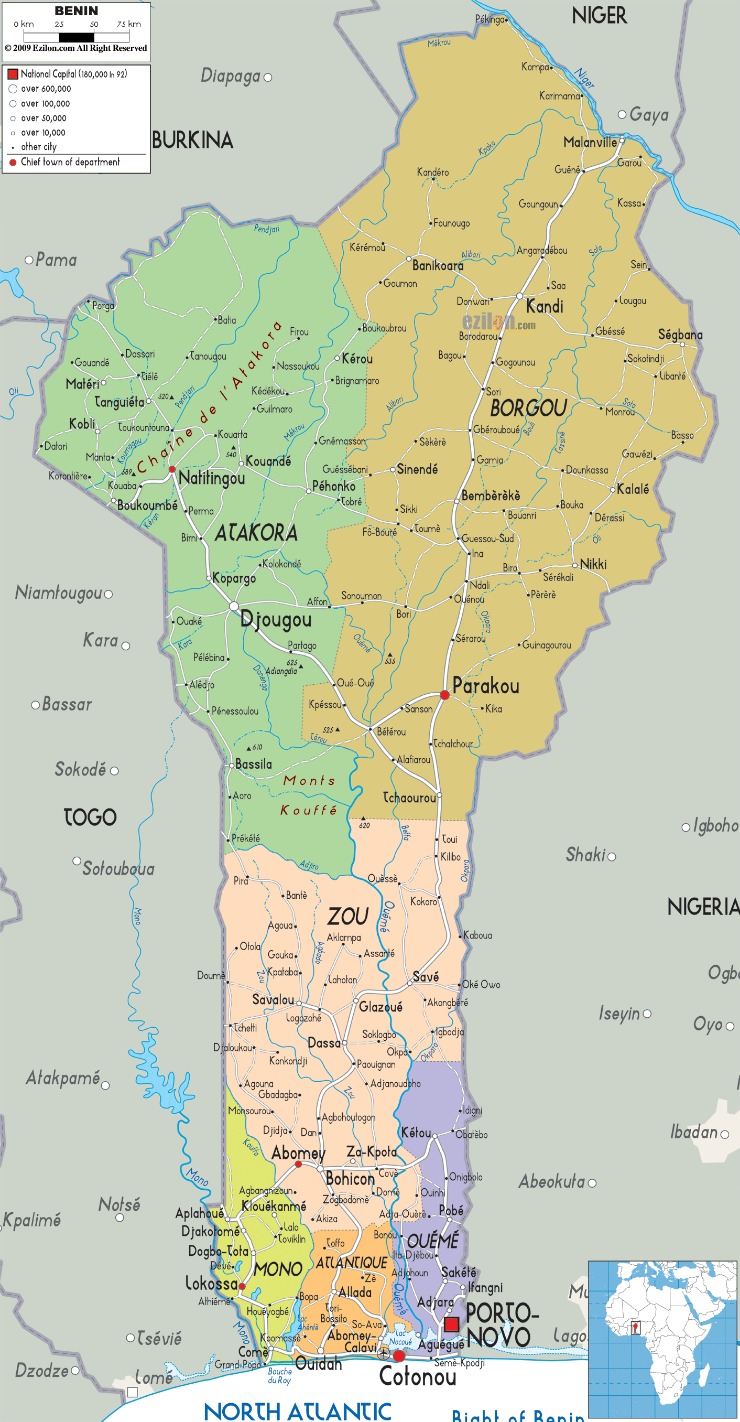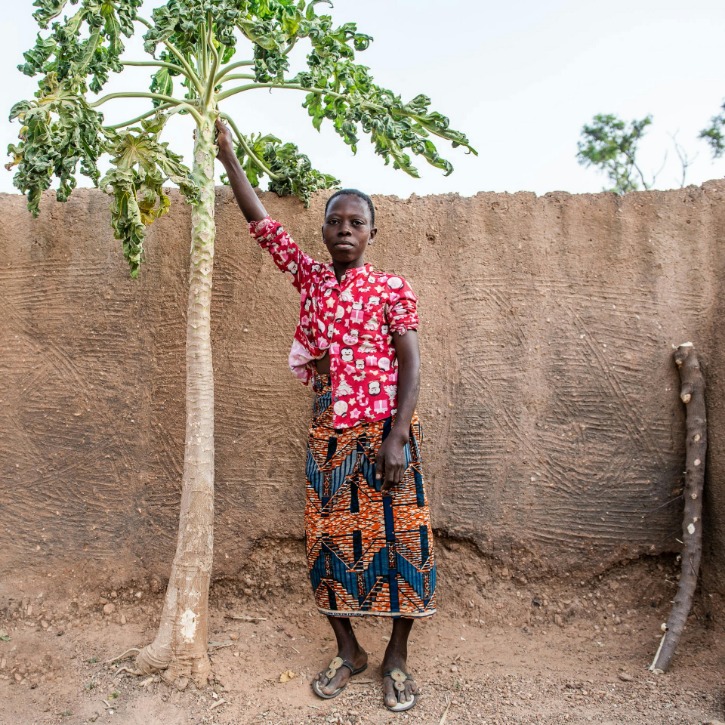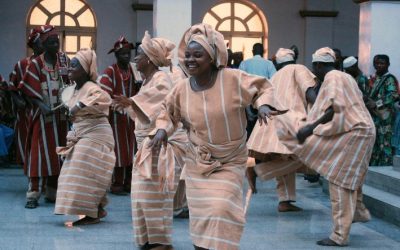Historical Background of Benin in Nigeria
Benin, located in southwestern Nigeria, is a city rich in history and cultural heritage. It was once the center of the powerful Benin Empire, renowned for its impressive art, especially its bronze sculptures and large wall protective structures. The empire flourished from the 13th century until it was colonized by the British in the late 19th century. Today, Benin remains a significant cultural hub, preserving its historical legacy and attracting visitors interested in exploring its ancient traditions and artifacts.
Pre-Colonial History and the Benin Empire
The history of Benin in Nigeria is rich and complex, rooted in its long-standing cultural and political heritage. Before the advent of European influence, the region was home to the powerful Benin Kingdom, which dates back to at least the 11th century. This era is characterized by vibrant trade, sophisticated art, and an organized political system centered around the Oba, the monarch of Benin.
Pre-colonial history in Benin involves the development of a highly centralized government that effectively managed internal administration and external relations. The Benin people were skilled in bronze casting, especially the famous Benin Bronzes, which depicted their history, leadership, and cultural achievements. The kingdom expanded its influence through warfare and diplomacy, establishing dominance over neighboring communities and trading partners across West Africa.
The Benin Empire reached its height between the 13th and 15th centuries, becoming one of the most influential states in West Africa. Its capital, Benin City, was renowned for its formidable walls, advanced urban planning, and artistic mastery. European contacts began in the late 15th century with the Portuguese, who traded goods for local resources and facilitated the empire’s integration into broader Atlantic trade networks. Despite external pressures and eventual colonization, the legacy of the Benin Empire continues to resonate in Nigerian history and culture today.
Colonial Era and British Rule
Benin, located in southwestern Nigeria, has a rich historical background that dates back centuries. The Benin Kingdom, also known as the Kingdom of Benin, was a highly developed and influential civilization renowned for its advanced arts, especially its bronze sculptures and intricate plaques. It was a prominent regional power from the 13th century until the late 19th century, maintaining sophisticated political and social structures.
During the colonial era, the British Empire expanded its influence into West Africa, culminating in the invasion of the Benin Kingdom in 1897. The British punitive expedition aimed to suppress resistance and establish control over the region. The conquest led to the sack of Benin City, the kingdom’s capital, and the looting of thousands of priceless artworks, many of which are now in museums worldwide. This marked the end of the independent Benin Kingdom and paved the way for formal colonial rule.
Under British rule, the region was incorporated into the Southern Nigeria Protectorate in 1900, and later the amalgamation of Nigeria in 1914 unified diverse ethnic groups and territories into a single colony. Colonial administration disrupted traditional governance, introduced new political boundaries, and laid the foundations for modern Nigeria’s administrative system. The period experienced significant economic changes and infrastructural development but also faced resistance and cultural suppression, shaping the socio-cultural landscape of present-day Benin in Nigeria.
Post-Independence Developments
Post-independence, Benin in Nigeria experienced significant political, social, and economic changes. Nigeria gained independence from British colonial rule in 1960, and Benin, formerly known as Dahomey, became a part of Nigeria in 1979 after the country’s creation from the Northern Nigeria region. The integration of Benin into Nigeria brought about a complex process of nation-building, with efforts to unify diverse ethnic groups and address regional disparities. During the early years after independence, Nigeria faced political instability, including military coups and civil unrest, which affected Benin’s development. The 1970s and 1980s saw a focus on infrastructural development, education, and economic reforms aimed at fostering national unity and progress. Today, Benin in Nigeria continues to evolve, contributing to Nigeria’s vibrant cultural diversity and economy, while also grappling with challenges related to governance, infrastructure, and social cohesion.
Geography and Demographics
Benin is a city located in Nigeria that is rich in geographical features and diverse demographics. It serves as a significant cultural and economic hub within the region. The landscape of Benin includes lush greenery, rivers, and urban areas that contribute to its unique environment. The population of Benin is made up of various ethnic groups, fostering a vibrant and dynamic community. Understanding its geography and demographics is essential to appreciating the city’s role in Nigeria’s broader societal fabric.
Location and Physical Features
Benin is a city located in Nigeria, known for its rich history and cultural significance. It is situated in the southwestern part of the country, near the Ogun River, which influences the region’s physical landscape. The area features diverse physical features including low-lying plains, riverbanks, and some hilly terrains, providing a varied geographical environment. The climate in Benin is generally tropical, with distinct wet and dry seasons, supporting lush vegetation and agricultural activities. Demographically, Benin has a vibrant population characterized by a mix of ethnic groups and communities, with a majority of residents engaged in trade, farming, and small-scale industries. The city serves as an important commercial hub within Nigeria, contributing to the country’s overall diversity and economic activity.
Population Size and Density
Benin, located in Nigeria, is a region known for its diverse geography and dynamic demographics. The area encompasses a variety of landscapes, from riverine zones to savannahs, contributing to its rich ecological diversity.
Its population size has been steadily increasing over the years, reflecting both natural growth and migration patterns. Population density varies across different parts of Benin, with urban centers experiencing higher concentrations of people compared to rural areas.
- The population of Benin in Nigeria is estimated to be several million people, making it a significant demographic component of the country.
- Urban areas such as the capital city and surrounding towns tend to have higher population densities, often exceeding hundreds of persons per square kilometer.
- Rural regions typically display lower density figures, with communities spread out over larger areas, mainly engaged in agriculture and local trades.
- The demographic composition includes a mix of ethnic groups, with diverse languages and cultural practices contributing to the region’s social fabric.
Ethnic Composition and Languages

Benin in Nigeria, often confused with the neighboring country Benin, is a region rich in diverse geography and demographics. This area features a variety of landscapes, including savannahs, forests, and riverine zones, which support a vibrant array of wildlife and plant species. The population is composed of multiple ethnic groups, each contributing to the cultural mosaic of the area. The Yoruba, Igbo, and Hausa are among the dominant ethnic communities, alongside smaller groups such as the Tiv and Kanuri. Languages spoken in Benin in Nigeria primarily include Yoruba, which is widely used as the lingua franca of the region, along with English, which serves as the official language. Local dialects and indigenous languages also play a significant role in daily communication and cultural identity among the various ethnic communities. Overall, the region’s diverse geography and multicultural demographics make it a significant cultural and ecological zone within Nigeria.
Economic Activities in Benin
Benin, a prominent northern region in Nigeria, is known for its diverse economic activities that play a vital role in its development. The area boasts a rich blend of traditional and modern industries, including agriculture, trade, and local craftsmanship. These economic pursuits provide livelihoods for many residents and contribute significantly to the region’s overall growth and stability.
Agriculture and Farming
Benin, located in Nigeria, has a diverse economy with agriculture playing a vital role in its development. The region’s fertile land and favorable climate support various farming activities that sustain the local population and contribute to the nation’s economy.
- Crop Farming: Benin is known for cultivating staples such as maize, yams, cassava, and millet, providing food for both local consumption and export markets.
- Cash Crops: The region also produces cash crops like cocoa, palm oil, and cotton, which generate income for farmers and boost export revenues.
- Livestock Farming: Cattle, goats, and poultry are raised extensively in Benin, supporting local diets and livelihoods.
- Fishing: Given its proximity to water bodies, fishing is an important activity, providing protein for the community and contributing to local trade.
Despite its agricultural potential, Benin faces challenges such as limited access to modern farming techniques and infrastructure. Efforts are ongoing to improve productivity, ensure sustainable farming practices, and diversify the economic base in Nigeria’s Benin region.
Trade and Markets
Benin in Nigeria plays a significant role in the regional economy through diverse economic activities, trade, and markets. The city of Benin, as the capital of Edo State, serves as a major commercial hub that facilitates the exchange of goods and services within Nigeria and neighboring countries. Local markets such as the New Benin Market and Oba Market are bustling centers where traders sell a wide range of products including agricultural produce, textiles, crafts, and imported goods. These markets not only support the livelihoods of many residents but also attract traders from nearby regions, fostering vibrant trade networks.
Trade in Benin is characterized by its vibrant street markets, small-scale manufacturing, and commercial activities that are pivotal to the state’s economy. The city is known for its rich cultural heritage, which in turn promotes the sale of traditional crafts, artworks, and cultural artifacts. Additionally, Benin benefits from its strategic location, which facilitates import and export activities through the nearby ports and border crossings, boosting both local and regional commerce.
Markets in Benin are a reflection of its diverse economic landscape, offering opportunities for entrepreneurship and small business growth. The energetic trade environment supports sectors such as agriculture, craftsmanship, and trading of imported goods, contributing significantly to the economic sustenance of the community. Overall, Benin’s vibrant trade and bustling markets are key drivers of economic activity, fostering development and integration within Nigeria and beyond.
Local Industries and Commerce
Benin in Nigeria is a city with a diverse economic profile driven by various local industries and commercial activities. The city plays a significant role in the regional economy through its vibrant markets, trading hubs, and small-scale industries. Agriculture remains an important sector, with local farmers cultivating crops such as yams, cassava, and maize to support both local consumption and small-scale trade.
Local industries in Benin include food processing, crafts, and textiles, which provide employment opportunities for many residents. The city’s markets are bustling centers of commerce where traders exchange goods ranging from agricultural produce to manufactured items, fostering a lively commercial environment. Small and medium enterprises contribute substantially to the local economy, with businesses operating in sectors such as retail, transportation, and services.
Commerce in Benin is characterized by active trade connections within Nigeria and with neighboring countries. The city benefits from its strategic location as a commercial hub, facilitating import and export activities. Overall, Benin’s economic activities and local industries are vital to its development, providing livelihoods for its population and supporting regional growth.
Cultural Heritage of Benin
Benin, a vibrant city in Nigeria, boasts a rich cultural heritage that reflects centuries of history, tradition, and artistry. As a hub of ancient civilization, it is renowned for its impressive art forms, traditional festivals, and historic sites that showcase the deep cultural roots of the Benin people. This heritage plays a vital role in preserving the identity and legacy of the community, attracting visitors from around the world to explore its unique cultural treasures.
Traditional Festivals and Celebrations
The cultural heritage of Benin, located in Nigeria, is renowned for its rich history, art, and traditions that have been preserved for centuries. The Benin Kingdom, famous for the ancient Benin City, is celebrated for its impressive bronze and ivory artworks, which reflect the sophisticated craftsmanship and artistic skills of the Benin people. This heritage plays a vital role in shaping the identity and pride of the Benin community today.
Traditional festivals and celebrations are an integral part of Benin’s cultural landscape. One of the most notable festivals is the Igue Festival, held annually to honor the Oba (king) and to mark the beginning of a new year. It involves elaborate ceremonies, traditional dances, and processions that showcase the deep spiritual and cultural beliefs of the Benin people. Another significant celebration is the Oba Festival, which commemorates the spiritual and political authority of the Oba and features colorful parades, masquerades, and entertainment that attract both locals and visitors.
These festivals serve to reinforce community bonds, preserve age-old customs, and promote cultural tourism in Benin. They offer a vibrant display of Benin’s historical traditions, music, dance, and costume, ensuring that the rich cultural heritage continues to thrive for future generations.
Arts, Crafts, and Notable Artworks
Benin, a historic city in Nigeria, boasts a rich cultural heritage renowned for its stunning arts, crafts, and notable artworks. The city is famed for its intricate bronze sculptures, which are celebrated worldwide for their craftsmanship and historical significance. These artworks, often depicting royal figures and scenes from Benin’s history, highlight the sophistication of Benin artisans and their mastery in metalworking.
In addition to bronzes, Benin is famous for its elaborate ivory carvings, intricate beadwork, and terracotta sculptures. These crafts traditionally served ceremonial purposes and were used to adorn palaces and royal artifacts, reflecting the city’s regal history. The arts express the spiritual beliefs, social hierarchy, and artistic excellence of the Benin people, connecting contemporary generations with their ancestors.
The Benin National Museum and various cultural festivals help preserve and showcase the city’s artistic legacy. Notable artworks such as the Benin Bronzes are celebrated as cultural treasures, symbolizing the artistic ingenuity and historical richness of the Benin Kingdom. These works continue to inspire and attract scholars, artists, and visitors from around the world, making Benin a vital custodian of Nigeria’s cultural heritage.
Religious Practices and Beliefs
The cultural heritage of Benin in Nigeria is rich and deeply rooted in history, art, and tradition. It reflects a sophisticated civilization known for its impressive bronze and ivory sculptures, intricate textile arts, and elaborate ceremonies that have been preserved over centuries. The Benin Kingdom, renowned for its historical significance, has contributed greatly to West African culture, fostering a unique identity that is celebrated both locally and internationally.
Religious practices and beliefs in Benin are diverse, blending traditional African spirituality with influences from Christianity and Islam. Indigenous religious beliefs center around the worship of ancestors, deities, and spirits believed to influence daily life. Rituals, festivals, and ceremonies are integral to maintaining harmony within the community and honoring spiritual entities.
In Benin, the veneration of ancestors is particularly important, with communities performing sacrifices and offerings to seek guidance, protection, and blessings. Traditional priests and spiritual leaders play crucial roles in mediating between the spiritual and physical worlds, conducting rites that ensure the well-being of their people. Despite modern influences, these religious practices remain vital components of Benin’s cultural fabric, embodying the enduring link between the people, their history, and their spiritual beliefs.
Political and Administrative Structure
Benin in Nigeria is a region known for its distinct political and administrative structure that plays a vital role in governance and local administration. This area functions within the broader framework of Nigeria’s federal system, showcasing unique local leadership, administrative divisions, and traditional institutions. Understanding its political and administrative setup provides insights into how governance is maintained and how local communities are managed within this vibrant and diverse region.
Local Governance Systems
Benin, located in Nigeria, operates within a well-defined political and administrative framework that ensures effective governance and local administration. The country follows a democratic system with a layered structure of government that includes the federal, state, and local levels, each with specific responsibilities and powers. The local governance system in Benin emphasizes decentralization, allowing for community participation and local decision-making processes. Local government authorities are responsible for the provision of basic services, development planning, and local infrastructure, working closely with traditional institutions to maintain stability and cultural integration. This system promotes accountability, transparency, and inclusive development across different communities within the region.
Role within Nigerian Federalism
Benin, a significant city in Nigeria, plays an important role within the country’s political and administrative framework, particularly in the context of Nigerian federalism. As the capital of Edo State, Benin functions as a key political hub, supporting both state and federal governments in administrative and governance activities.
- Benin operates under the administrative structure of Edo State, which is one of the 36 states in Nigeria, each with its own governor and legislative assembly.
- The city hosts various local government councils responsible for local administration, development projects, and policy implementation within its jurisdiction.
- It serves as a center for political activities, including state government operations, political parties, and civil society organizations that influence regional and national politics.
- Benin acts as a vital link between local communities and the federal government, representing regional interests in national discourse.
- The administrative roles of Benin are reinforced by its economic, cultural, and educational institutions, which serve as pivotal points in the governance and development agenda of Edo State and Nigeria as a whole.
Recent Political Developments
Benin in Nigeria is a prominent city with a rich political and administrative history. It serves as the capital of Edo State and functions as a significant hub for governance and regional politics. The political structure of Benin is characterized by a local government system that includes elected officials, traditional leaders, and administrative institutions that coordinate development and public services. Recent political developments have seen efforts to enhance local governance, improve infrastructure, and promote socio-economic growth. Also, there have been initiatives aimed at strengthening democracy, increasing transparency, and fostering inclusive participation across various community and political levels. These changes reflect Nigeria’s broader democratic trajectory and the strategic importance of Benin as an administrative center in the region.
Education and Healthcare Infrastructure
Benin in Nigeria is a region that continues to develop its education and healthcare infrastructure to improve the quality of life for its residents. Efforts are being made to expand access to quality education and essential medical services, addressing the needs of a growing population. Strengthening these sectors is vital for fostering sustainable growth, social stability, and economic progress in the area.
Schooling and Educational Institutions
Benin City, located in Nigeria, is known for its growing educational and healthcare infrastructure. The city hosts a variety of schooling institutions, including universities, colleges, and numerous primary and secondary schools that cater to the increasing population. These institutions aim to provide quality education and improve literacy rates within the region.
Furthermore, Benin City’s healthcare infrastructure has seen significant development, with several hospitals, clinics, and specialized medical centers offering services to residents. Efforts have been made to enhance healthcare delivery, ensuring that both preventive and curative services are accessible and effective for the community.
Overall, the commitment to improving education and healthcare infrastructure in Benin City reflects its strategic importance in Nigeria’s development, fostering a healthier, more educated, and more productive population.
Healthcare Facilities and Services
Benin in Nigeria has been making efforts to improve its education and healthcare infrastructure to enhance the quality of life for its residents. The region boasts a network of educational institutions ranging from primary schools to tertiary colleges, aiming to provide accessible and quality education to its population. Healthcare facilities in Benin include hospitals, clinics, and health centers equipped to handle a range of medical services, from primary care to specialized treatments.
Healthcare services in Benin are delivered through government-run establishments and private providers, with initiatives focused on maternal and child health, disease control, and preventive care. Despite ongoing improvements, challenges remain in ensuring equitable access to advanced healthcare facilities and sufficient resources. Overall, the development of education and healthcare infrastructure continues to be a priority for Benin in Nigeria as it strives for sustainable growth and better health outcomes for its community.
Challenges and Opportunities
Benin in Nigeria faces significant challenges and opportunities in its education and healthcare infrastructure, which are crucial for the nation’s overall development. Despite progress in some areas, there remain issues related to quality, accessibility, and resource allocation that impact the well-being and growth of the population.
Education Infrastructure, Challenges, and Opportunities
- Limited access to quality education, particularly in rural areas, hampers literacy rates and skill development.
- Inadequate school facilities and insufficient teaching materials reduce learning effectiveness.
- High dropout rates due to economic hardships and socio-cultural factors.
- Opportunities include expanding infrastructure with government and private sector investment, promoting vocational training, and integrating technology in classrooms.
Healthcare Infrastructure, Challenges, and Opportunities
- Insufficient healthcare facilities and trained personnel limit access to quality medical services.
- High prevalence of preventable diseases and inadequate sanitation facilities pose public health challenges.
- Limited healthcare funding and inefficient supply chains affect service delivery.
- Opportunities involve strengthening primary healthcare systems, leveraging mobile health technologies, and partnerships with international organizations to improve health outcomes.
Tourism and Landmarks
Benin, a vibrant city in Nigeria, is renowned for its rich history and cultural landmarks that attract travelers from around the world. The city offers a unique blend of ancient traditions and modern development, making it a fascinating destination for tourism. Visitors can explore a variety of historical sites and landmarks that showcase the city’s heritage and natural beauty, providing an unforgettable experience for all who visit.
Historical Sites and Museums
Benin City, located in Nigeria, is renowned for its rich history, vibrant culture, and impressive landmarks that attract many tourists. Visitors often explore its ancient walls, traditional markets, and historical sites that reflect the city’s glorious past as the center of the powerful Benin Empire.
The Benin National Museum is a must-visit for anyone interested in the history and art of the region, showcasing exquisite artifacts, bronze sculptures, and royal relics. Nearby, the Benin Royal Palace offers a glimpse into the traditions and governance of the Edo people, with its striking architecture and valuable cultural heritage.
Another notable site is the Omo North Ancient Walls, which once served as defensive fortifications and are remnants of the city’s ancient civilization. The city also celebrates its history through colorful festivals and cultural displays that highlight its significance in Nigeria’s history.
Natural Attractions
Benin City, located in Nigeria, is renowned for its rich history, vibrant culture, and stunning natural attractions. Tourists visiting this city can explore its impressive landmarks like the Benin Royal Palace, which is a UNESCO World Heritage Site and an important cultural hub that offers insight into the ancient Benin Empire. The city is also famous for its elaborate art, bronzework, and historical relics that showcase its glorious past.
Natural attractions in and around Benin include the Ikogosi Warm Springs, known for their unique warm and cold springs flowing side by side, offering a soothing experience for visitors. The Idanre Hills provide breathtaking views and are perfect for hiking and sightseeing, while the Ososo Hills boast scenic landscapes, waterfalls, and lush greenery that attract nature lovers. These landmarks and attractions make Benin City a captivating destination for those interested in history, culture, and natural beauty.
Tourism Development Initiatives
Benin, a vibrant city in Nigeria, is renowned for its rich cultural heritage and historic landmarks that attract numerous tourists each year. The city is home to the ancient Benin Kingdom, famous for its exquisite bronze sculptures and intricate art, which serve as significant tourist attractions. To promote tourism, the local government has launched various development initiatives aimed at preserving cultural sites and enhancing visitor experience. These include improving infrastructure, establishing heritage museums, and organizing cultural festivals that showcase Benin’s history and traditions. Such efforts not only boost the local economy but also ensure that Benin remains a prominent destination for cultural tourism in Nigeria.





0 Comments